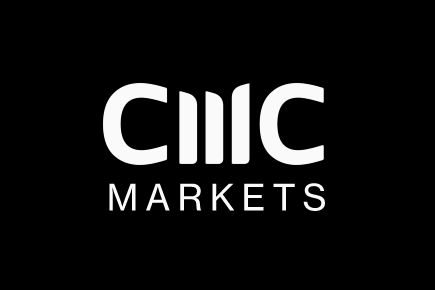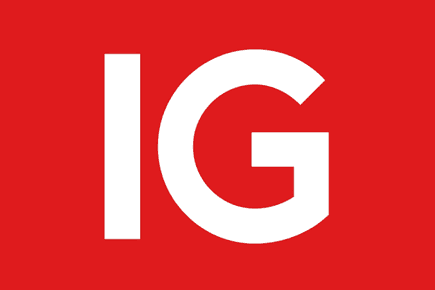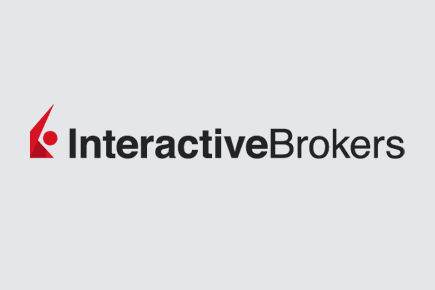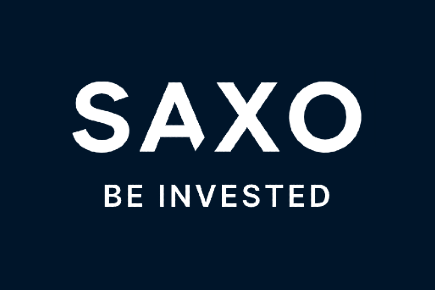Futures trading can be a highly useful strategy for speculating on the future performance of assets or even hedging your investments.
Of course, you’ll need an account with a UK futures broker to access these contracts. So, read my guide to discover the best futures brokers UK, and how to trade futures.
Also consider: Best Forex Trading Apps
Below are five of my top picks of the best futures brokers available in the UK alongside a snapshot of their main features and benefits.
5 of the best futures brokers April 2024
CMC Markets is one of the best futures brokers available in the UK. Trades can be made through Next Generation, the broker’s online trading platform, featuring pioneering technology that offers you price alerts, stop-loss orders, and 100% automated execution of trades.
Using this platform, you can access a wide range of financial markets and assets, predominantly through commodity and indices futures.
With CMC Markets, you can place spread bets or trade CFDs on their version of futures, known as “forward contracts”. These differ from futures in that they are traded “over the counter” (OTC) rather than on an exchange. As a result, these are essentially an underlying form of futures.
The benefit of trading forwards rather than futures directly is that they can often be customised at a point during the contract, allowing you to react to market changes. You usually can’t do this with futures contracts, which are typically locked in at the agreed price.
Features and benefits
- Use spread bets and CFDs to trade “forward contracts”
- 100% automated execution of your trades
- Trade futures on many commodities and indices
Spread bets and CFDs are complex instruments and come with a high risk of losing money rapidly due to leverage. 69% of retail investor accounts lose money when spread betting and/or trading CFDs with this provider. You should consider whether you understand how spread bets and CFDs work and whether you can afford to take the high risk of losing your money.
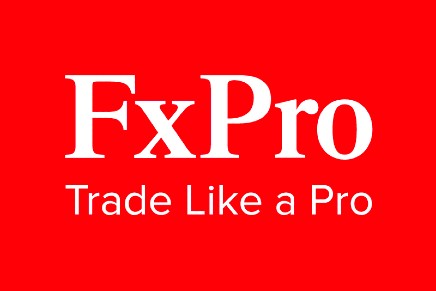
One of the best online trading platforms available, FxPro offers access to futures contracts through CFDs.
This broker claims to offer deep liquidity and fast execution, boasting that most orders are completed in a remarkable 14 milliseconds.
FxPro also has an excellent customer service offering, providing 24/7 support in more than 17 languages.
You can use one of four different trading platforms with FxPro:
- FxPro Platform
- FxPro MetaTrader 4
- FxPro MetaTrader 5
- FxPro cTrader.
This wide range of options makes it likely that you’ll find a suitable platform for your needs.
Another great benefit of using FxPro is that the broker offers access to a demo account. That means you can learn about trading by doing it yourself, using virtual money so that your cash isn’t at risk in the market when you do.
They also have a range of educational materials, meaning that this can be a handy platform for beginners.
Features and benefits
- Access futures contracts through CFDs
- Deep liquidity and execution in just 14 milliseconds
- Wide range of educational materials and 24/7 customer support
Capital at risk.
IG is a reliable broker in the UK, providing direct access to a range of financial markets, including over 80 indices for index futures – more than any other provider – as well as commodity and bond futures.
Thanks to IG’s large client base, the broker claims that trading futures with them offers deep internal liquidity, ensuring the best execution even when contracts are nearing expiry.
Like other brokers on this list, you won’t actually buy futures contracts yourself when trading with IG, but rather trade derivatives such as CFDs or spread bets on them.
That means you don’t have to access the contracts personally, but rather simply trade and speculate on the underlying market prices of the assets. This also means you can trade with leverage, allowing you to trade larger sums than your initial deposit to magnify potential gains.
Remember: leverage is a double-edged sword, as losses will also be magnified. This could mean you lose more than your invested sum.
This broker has a transparent pricing structure on futures trades, which replicate the price and expiry dates of the underlying contract.
You can also take smaller positions with IG’s “mini futures contracts”, offering the same access as full-sized futures but with smaller sums.
Features and benefits
- Place spread bets and CFDs on a huge range of futures contracts
- Over 80 indices for index futures, more than any other broker
- “Mini futures contracts” allow you to take smaller positions
Spread bets and CFDs are complex instruments and come with a high risk of losing money rapidly due to leverage. 69% of retail investor accounts lose money when trading spread bets and CFDs with this provider. You should consider whether you understand how spread bets and CFDs work, and whether you can afford to take the high risk of losing your money.
Interactive Brokers, also known as “IBKR”, is one of the most popular investment platforms around and also offers access to futures trading.
With IBKR, you can trade futures across 150 markets worldwide with low commissions, ranging from just $0.25 to $0.85 per contract.
Asset classes available with this broker range from agriculture, energy, and metals to currencies, crypto, and equity indices.
Trading tools at Interactive Brokers are incredibly powerful and provide you with lots of information; however, some of the platforms can have a complicated user interface, so novices should stick to the Client Portal, which offer a beginner-friendly environment.
There is also the broker’s “Traders’ Academy,” which offers lots of online courses, including for futures.
Features and benefits
- Commission ranging from just $0.25 to $0.85 per contract
- Range of asset classes, including energy, crypto, and indices
- Traders’ Academy features free online courses to build knowledge
Capital at risk.
Saxo Markets offers access to more than 300 futures across 28 global exchanges, making it another fantastic futures broker for UK investors.
You can trade across a wide spectrum of assets with this futures trading broker, including indices, energy, metals, agriculture, interest rates, and forex.
The platform that Saxo Markets offers comes with advanced futures trading tools, including the ability to place orders to buy and sell from the same ticket, as well as view and monitor futures prices in real time.
Futures commissions charged will depend on what tier of account you have:
- £3 for Classic
- £2 for Platinum
- £1 for VIP.
Saxo Markets also offers 24-hour customer service support. So, if you need help or have queries about your account, you’ll usually be able to speak to someone to solve these.
Features and benefits
- Access to 300 futures across 28 global exchanges
- Commissions ranging from just £1 to £3, depending on account
- 24-hour customer service support to help with account queries
61% of retail investor accounts lose money when trading CFDs with this provider. You should consider whether you understand how CFDs, or any of our other products work, and whether you can afford to take the high risk of losing your money. The value of your investments can go down as well as up. Losses can exceed deposits on some margin products. Professional clients can lose more than they deposit. All trading carries risk.
Which broker is best for futures trading?
Realistically, the best futures broker will come down to your personal circumstances, including how much you have to invest, how much experience you have, and your investment goals.
For example, your trading needs might be low rates of commission and a small initial deposit. In that case, Interactive Brokers might be the platform that will best suit you.
Meanwhile, if you’d prefer access to a wide range of assets regardless of the cost, then the IG platform might suit you better, with access to more futures indices than any other broker.
Make sure you fully research the different brokers on offer so you can make an informed decision on the correct one for you.
What is a futures broker?
A futures broker is simply any investment broker or platform that offers access to the futures markets.
Futures brokers either provide direct market access to futures exchanges where you can buy and sell contracts yourself.
Alternatively, they may allow you to trade derivatives on futures contracts using spread bets or CFDs.
5 easy steps to start trading futures
- Choose a futures trading broker – you are likely to find a broker that suits you among the futures trading platforms I have described above.
- Open a futures trading account – provide any necessary documentation to verify your identity with your broker. Usually, this can be done in just a few minutes.
- Deposit funds – this can typically be done online by bank transfer. Some trading platforms may require a minimum deposit.
- Select your trades – whether you purchase contracts yourself or trade derivatives, select the ones that suit your investing needs and place your trades.
- Monitor your positions – keep an eye on your positions and make any adjustments if preferable and/ or possible.
What is futures trading?
Futures trading involves trading a futures contract. In futures contracts, a buyer purchases a contract that allows them to trade a certain asset on or before a specific future date for a predetermined price.
If you have entered a futures contract, you must make the trade on expiry. This differs from options markets where there’s no obligation for you to purchase the underlying asset at the end.
You can trade futures on a range of financial instruments and asset classes through exchanges such as the London Stock Exchange. Futures contracts can be traded on assets including:
- Stock indices, such as the FTSE 100 or S&P 500
- Commodities, such as oil
- Bonds
- Forex.
How do futures traders make money?
Futures trading works by buying, selling, or speculating on the value of these contracts. There are various ways futures traders can generate returns from contracts, with some common methods being :
- You buy a futures contract at a predetermined price on an asset that then rises in value. In doing so, you pay a lower price than you would have done if you had bought the asset once its price increased. This is known as “going long”.
- You buy a futures contract on an asset that rises in value. You then sell your futures contract to another buyer before expiry so that they can buy at the agreed price, pocketing a premium in return.
- You can sell a futures contract on an asset that you think will fall in value. If it does, you’ll be paid a higher price than the asset will be worth at expiry. This is known as “going short”.
- You use spread bets or CFDs to speculate on the value of futures contracts, rather than owning the contract on the asset yourself.
Find out more about how these work in my example below, and more about trading derivatives later in my guide.
An example of a futures trade
Consider these examples of a futures contract in action.
Please note that these figures are entirely illustrative and do not represent what is happening in the market, or what will happen in future.
Taking a long position
Imagine that crude oil is trading for £90 a barrel. You see on your futures trading broker’s platform that there is a futures contract offering 100 barrels of crude oil at £95 per barrel at the start of next year on 1 January.
You think that the price of oil is actually going to rise beyond this price to £100 a barrel, so you buy the futures contract. That’s 100 barrels at £95, totalling £9,500, which you will have to pay on the expiry of the contract.
By 1 January, oil prices have reached £100 as you predicted. That means whoever sold you your futures contract must now sell you the oil at £95, as per the contract. So, you now have an asset worth £10,000 but you only paid £9,500, meaning you made a gain of £500.
On the other hand, had oil prices dipped to £85 a barrel at contract expiry, you would still have had to pay the agreed contract price of £95. In this case, you paid £9,500 for assets now worth £8,500. In total, that means you made a £1,000 loss in value.
Taking a short position
With futures contracts, you can also take a short position if you think that the value of the asset is going to fall instead. That means you sell a futures contract where you agree to sell the asset for a predetermined price and date.
Using the example above again where oil is £90 a barrel, you might sell a futures contract to a buyer which states that they will buy 100 barrels of oil from you at £95 on 1 January, a total of £9,500.
On expiry, oil is trading at £85 as you predicted. The buyer must still pay you the £9,500 for an asset that is now worth £8,500 – a £1,000 gain for you.
Of course, had oil increased to £100 a barrel, you’d have to sell your oil now worth £10,000 to a buyer for the agreed £9,500 – essentially a £500 loss.
Settling contracts in cash
As most traders and investors don’t actually own 100 barrels of oil or whatever asset they’re trading futures on, many contracts are actually instead settled in cash value.
So, regardless of the outcome of the trade, the asset in question may never even change hands.
Trading derivatives on futures contracts
Rather than entering futures contracts yourself, you can speculate on their value by trading derivatives, such as CFDs and spread bets, on futures instead. This is how many of the best futures brokers I mentioned earlier provide you with access to the futures markets.
Spread betting on futures contracts
Spread betting involves speculating on the upward or downward movement of a futures contract without ever owning the contract or the asset itself.
You place a bet on a certain number of “points” that you think a contract will rise or fall in value by. Your returns are then linked to whether you are correct.
As spread betting is considered to be gambling rather than investing, your gains are free from Capital Gains Tax (CGT) in the UK.
Trading CFDs on futures contracts
CFD trading also involves speculating on the price movements of an asset, with your profits or losses determined by the difference in value from the start of the contract to the close.
It’s important to note that trading CFDs comes with a great deal of risk. In fact, providers are required to include a risk warning on their website that tells you how many retail investor accounts lose money when trading CFDs with them.
This figure is typically between 50% and 80%, meaning there is a great likelihood that you will lose money when trading CFDs.
These are complex instruments, so make sure you fully understand how they work before you start trading. If you aren’t sure, consider taking independent financial advice.
Pros and cons of futures trading
So, now you know how they work, why trade futures? Read about a few of the major pros and cons to take into account when trading futures.
Pros of futures trading
-
Fixed trading costs from the outset
The price you pay for a futures contract is fixed from the outset, meaning you know exactly how much you’ll pay in the event that you hold the contract until expiry.
Additionally, unlike an options contract where the value decays over time, futures contracts stay at the same value until expiry.
-
Ability to hedge risk
Futures contracts allow you to hedge risk on your assets. Rather than hoping that the price of an asset will change favourably, using a futures contract means you will be able to purchase it at a guaranteed price later down the line.
This hedges risk compared to buying the asset at the outset and holding it in the hope that it behaves as you expect.
-
Highly liquid
Futures contracts are often for highly liquid assets, such as indices, currencies, and commodities. As a result, you can typically enter and exit positions quickly and easily.
Cons of futures trading
-
A potentially high-risk investment strategy
All investing involves risk, but futures contracts can present a high risk of losing money, as you can never know which way the market will move.
Many factors can cause price fluctuations, from wider economic factors to company results and announcements. This can change the value of an asset in a direction that isn’t favourable to you.
As a result, futures contracts may only be suitable for advanced traders who are willing to take on this additional risk.
If you’re unsure whether futures trading is suitable for you, consider taking independent investment advice.
-
You are obligated to make the trade
Unlike options contracts where you have the right rather than the obligation to trade an asset at a certain price, you will have to make your trade on the expiry of a futures contract.
This may mean you end up with a less favourable price on your asset than what it is currently trading at in the market.
If you’d rather provide a hedge to your investments without the obligation to buy, you may want to consider options trading instead.
-
Leverage can expose you to substantial losses
One of the biggest risks that comes with futures trading is in using leverage with your broker.
Leverage means you only have to put down a portion of the investment amount, known as the “margin”, when making your trade. This means you can trade larger sums with a smaller upfront investment, potentially magnifying your gains.
However, losses will also be magnified, meaning you may be at risk of losing money rapidly.
In the UK, the Financial Conduct Authority (FCA) offers negative balance protection for investors so that you can’t go below £0 in your leveraged trading account.
Even so, you still stand to lose more than the margin when trading using leverage.
Best Futures Brokers UK FAQs
Can I trade futures in the UK?
Where can I trade futures in the UK?
Please note
The value of your investments (and any income from them) can go down as well as up and you may not get back the full amount you invested. Past performance is not a reliable indicator of future performance. Investments should be considered over the longer term and should fit in with your overall attitude to risk and financial circumstances.
CFDs are complex instruments and more than half of retail investor accounts lose money when trading CFDs. Please make sure that you know these risks before you start trading and that you’re aware there’s a high chance of losing money rapidly on your investment.
- Learn how to invest in the FTSE100
- Have you considered transferring your pension?
- Find the best trading platforms

